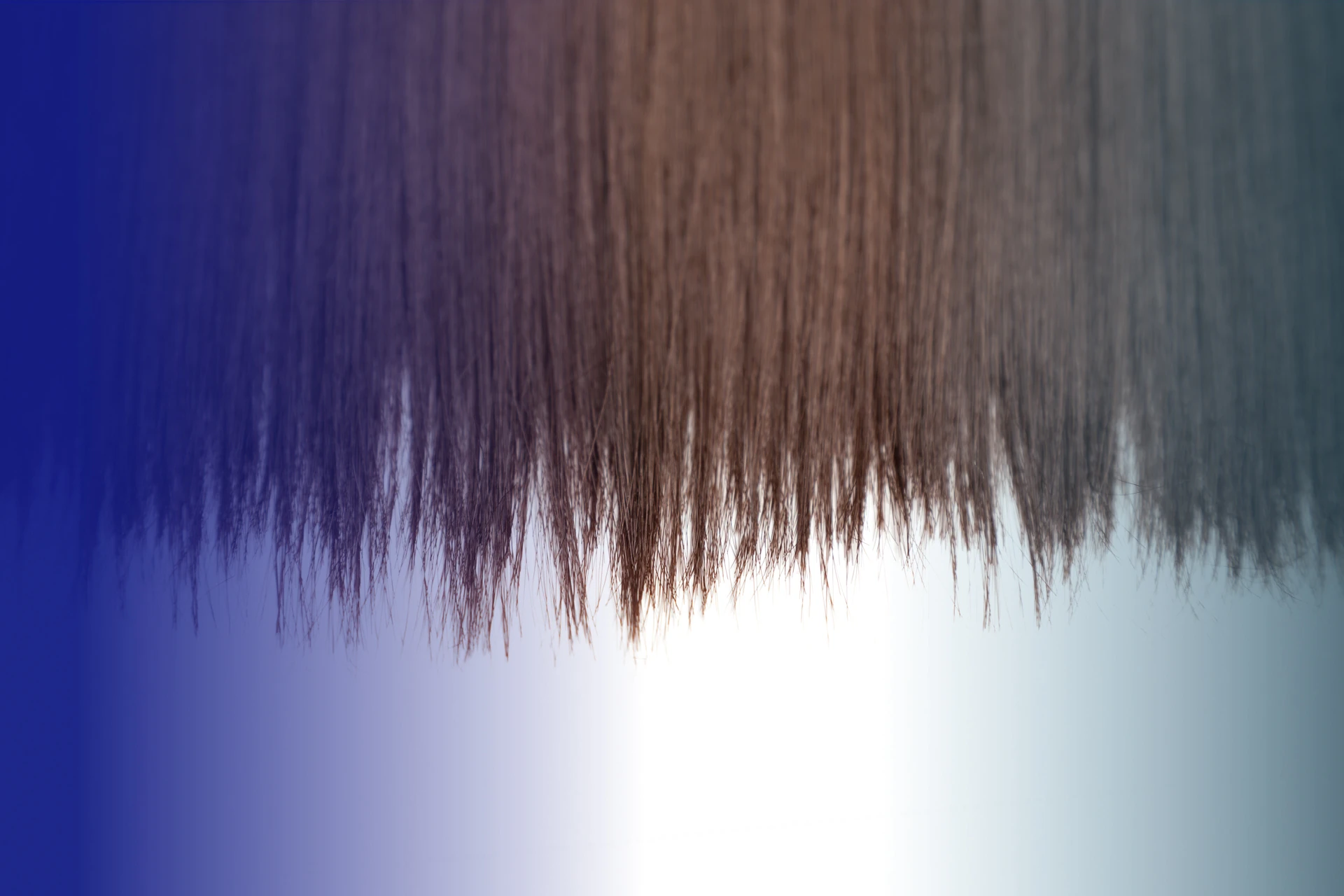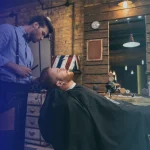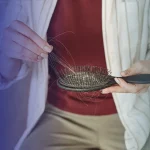
Table Of Content
We all experience hair breakage to a certain extent. Whether this is from exposing our hair to the elements, over-styling our locks or drying our hair too rigorously, hair breaking off is not necessarily a cause for alarm if it is not too excessive. The good news is, however, that there are many ways to prevent hair breakage from becoming a serious problem. To stop hair from breaking, it’s essential to use a moisturizing conditioner, avoid excessive heat styling, and incorporate regular trims to prevent split ends and maintain hair health. Just like the rest of our body, our hair reacts to external stimuli and how it is treated, so the better you care for your hair, the less likely it will be to break excessively.
Hair breakage happens when one or more hair shafts break or split, causing permanent damage to the strand. Common signs that your hair is prone to breaking off can include a change in colour, a brittle feeling and split ends – all signs of dryness. Hair that is about to break can also become frizzy. Hair breakage is a different thing to hair falling out naturally, but it can still alter the appearance and overall health of the hair if left unchecked. It can also affect all types and lengths of hair. Luckily, due to the rapid rate that hair grows at, the effects of hair breakage are not permanent. There are many ways to strengthen and protect the new hair growing through and prevent hair breakage from reoccurring at too severe a rate.
There is no simple, single answer to the question, what causes hair breakage? Often there are several factors at play, all of which can be mitigated against with a series of easy steps and changes to lifestyle or the way that you treat or style your hair. Where hair breakage is a symptom of another, more serious health condition, you should seek a professional diagnosis and ongoing medical advice.
Using too much heat to style your hair can lead to breakage, as the heat will weaken the strands and leave them more prone to damage. If you enjoy using straighteners or curling tongs, perhaps reduce the amount of times you use them per week, or invest in a good heat protection product to apply to the hair in advance. The same goes for colourants, chemicals, perms and relaxant treatments. Do these sparingly and apply protective products first to help your hair retain its moisture and prevent breakages. Use a shampoo and conditioner that has a neutral pH to further protect the hair and help it retain its natural condition. Get your hair trimmed regularly, as split ends can cause damage further up the strands if they are left for too long.
Brushing your hair will help keep it free from tangles and looking shiny and smooth, but brushing too often, or too harshly can lead to higher levels of broken hair. Choose a brush with natural bristles that provide a firm, but not too rigid stroke. Never brush your hair while it is wet – leave it to air dry for a little while first as wet hair is far easier to break than when it is dry. Don’t brush for too long – the myth that you need to brush your hair for 100 strokes a day is exactly that – a myth. Just brush it enough to remove tangles and to style it. Gently ease out any tangles, rather than yanking on them too roughly. If necessary, use a professional de-tangling product to help smooth out the hair without resorting to too much brushing.
Hair relies on water to prevent dehydration and dryness, both of which are common causes of hair breakage. Use a moisturising shampoo and conditioner that is suitable for your hair type and use a hydrating hair mask from time to time to help lock in extra moisture. Avoid using water that is too hard or contain higher levels of chlorine or heavy metals – get a water softener if necessary to give you hair the best possible treatment, or fit a shower filter system. Tackle dehydration from the inside too, by drinking plenty of water. This will not only add shine and lustre to your hair, but will help keep your skin looking fresh and your mind feeling active and raring to go. Steer clear of too much heat and apply a hair mask more often if you are in a hot or arid climate. Dry your hair on a lower heat setting to avoid burning the hair and breaking it.
Stopping your habit of rubbing your wert hair with a towel is a great way to stop hair breakage naturally, as the rubbing action can weaken and out stress on wet hair, which is already more prone to breaking and becoming frizzy than dry hair. If you prefer to use a towel to help dry your hair, try wrapping one around your hair and leaving it to absorb moisture naturally, rather than rubbing it. Otherwise, you can leave your hair to dry in the air for a while or use a hair dryer on a low setting to speed up the process. If you do use a towel, look for a soft, lint-free material that will help protect the hair, rather than anything too rough. Choose a larger towel so you can wrap your whole head of hair in it without having to pull the material or place any stress on your hair or scalp.
Getting the right balance in your nutrition plays a huge part in protecting the health of your hair and scalp and to guard against hair breaking too much. Hair that is not receiving the right nutrients can become dull, brittle and dry. One essential ingredient for healthy hair growth is biotin, commonly found in eggs and fish, while selenium, found in Brazil nuts, also helps to boost the condition of the hair. Other essentials for healthy skin and hair include omega-3 fatty acids, protein, iron, zinc and vitamin D. Consult your GP or a nutritionist if you are concerned that your diet may be causing excessive hair breakage and see what adjustments you can make to improve matters.
Linked closely to diet is the issue of eating disorders, which can have a devastating effect on all areas of the body. Anorexia and other disorders can often cause thinning hair and bald spots as the body fights to counteract the lack of nutrients being ingested. Eating disorders can also exacerbate dehydration too, especially if the person affected is not taking in enough fluids. Added to all that is the stress and anxiety associated with being ill and planning treatments and ways to recover.
Tying your hair back in too tight a style too often can also exacerbate hair breakage or hair loss due to the stress placed on the scalp and the hair follicles where they are being pulled tightly. This type of hair loss is known as traction alopecia and its effects can be reversed with a little care and attention. Styles such as ponytails, buns, cornrows and braids can all cause this pressure, so while you can enjoy styling your hair in this way from time to time, allow your hair to rest at other times and relax. Avoid using hair ties that are too tight or harsh, such as elastic bands – choose softer scrunchies and clips to hold your hair in place. You can also experiment with scarves and hats to change your look and still have fun with your hair.
Another medical condition that is associated with hair loss or breakage is hyperthyroidism. Again, people with this condition can experience dry, brittle or dull hair – and even thinning or bald patches as hair sheds as a result of hyperthyroid symptoms. Similar changes can occur in the skin and nails. Skin can become dehydrated, wounds can take longer to heal and lines on the hands and soles of the feet can become more pronounced. Skin can also become itchy and red. Fingernails and toenails can also crumble and break more easily if you are affected by hyperthyroidism. Speak to your medical consultant about ways to treat these symptoms and keep your hyperthyroidism under control.
If you are very anxious or under a larger amount of stress, you may start to see physical symptoms to go with your mental concerns. These can include hair thinning or breaking due to a condition called telogen effluvium. Again, this is not a permanent condition and will pass once the stress alleviates, however there are many things you can do to reduce its impact in the meantime. Keep your hair hydrated and well-nourished with a good, balanced diet and by drinking lots of water – this will also help you feel better overall. Try out stress relieving techniques, such as massage, meditation and counselling. Use a good quality hair mask from time to time to add extra moisture and to help you feel relaxed and properly cared for.
The causes above all come with their own ways to reduce or eliminate their impact on your hair. Decide which causes are affecting you most and choose the most suitable ways to correct, repair and prevent any damage. Your hairdresser or barber will also be able to offer you further advice and product recommendations to prevent hair breakage and help you enjoy healthier, stronger tresses for a long time to come. Remember that the health and appearance of your hair is a reflection on how you are feeling as a whole, so take note if you experience hair breakage and take steps to correct the problem.




